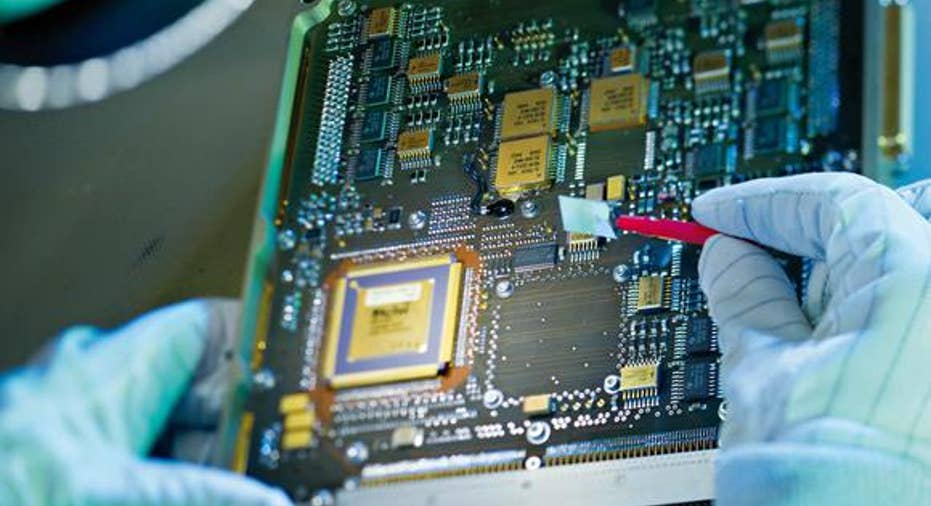Defense Electronics: Airbus Slims Down, KKR Bulks Up

Airbus Defence is a shambles.
Airbus Defence-Electronics makes tiny products -- and shrinking profits. Image source: Airbus Defence and Space.
Despite multiple threats arising on Europe's eastern and southern borders in recent years, Airbus Group's Defence and Space business saw its sales slide roughly 20% from 2013 to 2015. Profits are down 11% within Defence and Space (down 13% if you count profits from the part-military Helicopters as well). And now, it seems Airbus wants out -- at least in part.
Over the weekend, news broke that Airbus has agreed to sell its defense-electronics unit to U.S. private equity firm KKR for $1.2 billion. This sum will buy KKR a revenue stream worth about $1.1 billion annually, or about 8% of the defense business's sales. KKR will get a business that specializes in the production of radars and electronic sensors for military aircraft, ground systems, and warships -- high-tech stuff, but a business that The Wall Street Journal says is growing slower than the rest of Airbus.
Why KKR wants itAs a private equity firm, KKR is in the business of buying up unwanted and underperforming assets on the cheap, then either milking them for cash (through special dividends, for example), or prettying them up, cutting costs, and selling them back into the market when conditions are more favorable -- and prices are higher.
That doesn't always work out, though. As theJournalnoted in its discussion of the Airbus deal, KKR bought Northrop Grumman'sTASC national security business for about $1.6 billion back in 2009 -- a year when, most would agree, stock market assets were selling cheaply. When KKR finally got around to re-selling TASC, however (to Engility), the most it could get for the business was $1.1 billion.
On the face of it, at least, and not counting whatever dividends KKR was able to extract while it owned it, that worked out to a 33% loss on KKR's investment.
What could go wrong?From 2013 to 2015, Airbus' profits surged 44%, according to data from S&P Global Market Intelligence. This, however, was due more to the superb performance of Airbus' commercial airplanes business than to the worsening performance at Airbus Defence. I suspect, therefore, that Airbus is happy to get quit of this business.
But this does raise the question: Why wasn't KKR able to negotiate a better price? Historically, profitable, growing defense businesses tend to circle around a valuation of 100% of their annual sales. But KKR is paying 110% -- and for what is by all accounts an inferior defense business. (Defence and Space as a whole earns only 5.7% operating profit margins for Airbus, according to S&P Global data, and the electronics business was apparently doing even worse. In contrast, Northrop Grumman's electronic systems business earns operating profit margins of 15.6%!)
And maybe that's the answer: KKR may believe that when well managed, similar businesses should earn similar profit margins, and may think it can bring its new subsidiary up to Northrop Grumman levels of profitability over time. If it succeeds, this is a deal that could still turn out well.
But given that KKR overpaid in the first place, I wouldn't bet on it.
The article Defense Electronics: Airbus Slims Down, KKR Bulks Up originally appeared on Fool.com.
Rich Smithdoes not own shares of, nor is he short, any company named above. You can find him onMotley Fool CAPS, publicly pontificating under the handleTMFDitty, where he's currently ranked No. 288 out of more than 75,000 rated members.The Motley Fool has no position in any of the stocks mentioned. Try any of our Foolish newsletter services free for 30 days. We Fools may not all hold the same opinions, but we all believe that considering a diverse range of insights makes us better investors. The Motley Fool has a disclosure policy.
Copyright 1995 - 2016 The Motley Fool, LLC. All rights reserved. The Motley Fool has a disclosure policy.



















